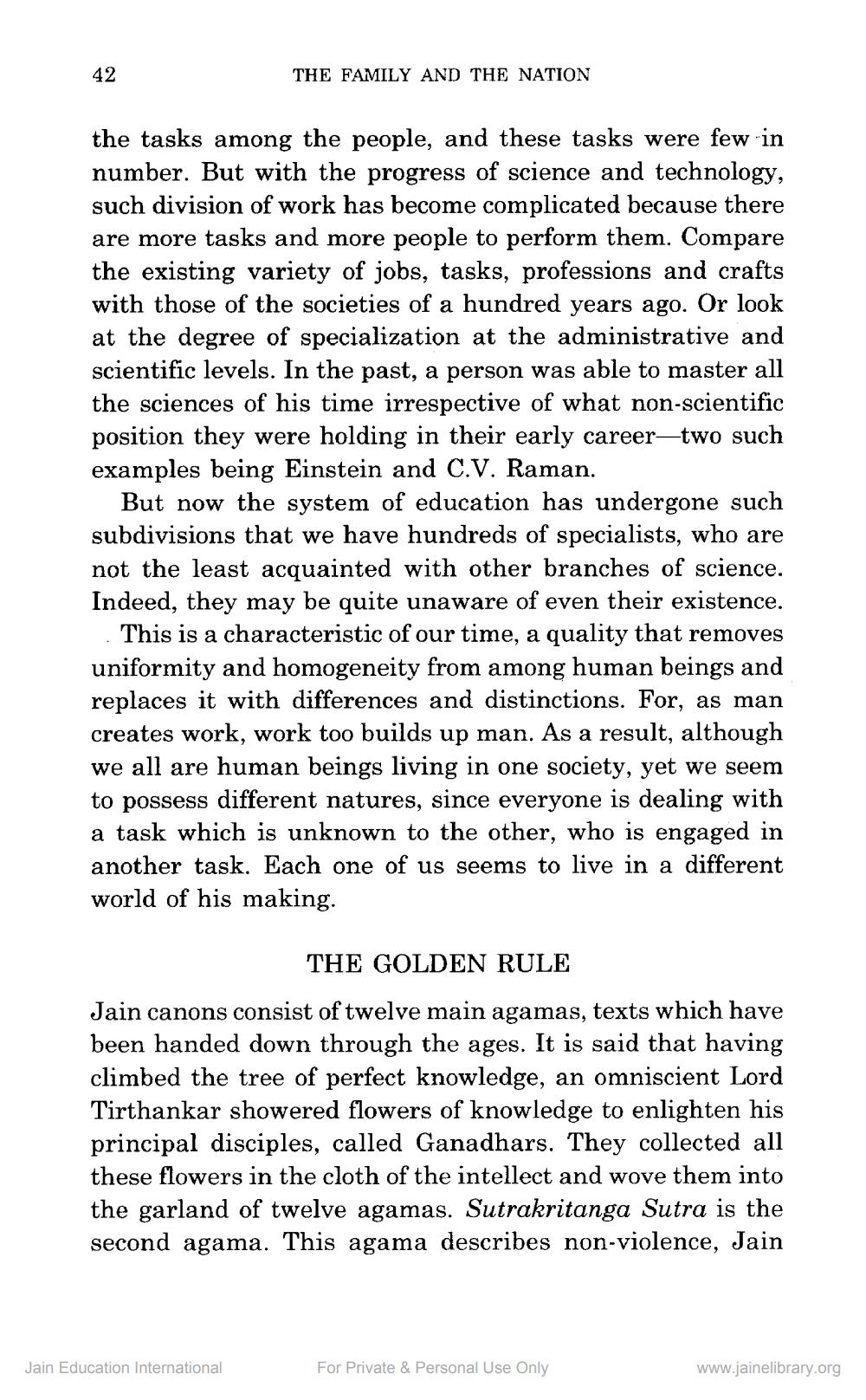________________
42
THE FAMILY AND THE NATION
the tasks among the people, and these tasks were few in number. But with the progress of science and technology, such division of work has become complicated because there are more tasks and more people to perform them. Compare the existing variety of jobs, tasks, professions and crafts with those of the societies of a hundred years ago. Or look at the degree of specialization at the administrative and scientific levels. In the past, a person was able to master all the sciences of his time irrespective of what non-scientific position they were holding in their early career-two such examples being Einstein and C.V. Raman.
But now the system of education has undergone such subdivisions that we have hundreds of specialists, who are not the least acquainted with other branches of science. Indeed, they may be quite unaware of even their existence.
This is a characteristic of our time, a quality that removes uniformity and homogeneity from among human beings and replaces it with differences and distinctions. For, as man creates work, work too builds up man. As a result, although we all are human beings living in one society, yet we seem to possess different natures, since everyone is dealing with a task which is unknown to the other, who is engaged in another task. Each one of us seems to live in a different world of his making.
THE GOLDEN RULE
Jain canons consist of twelve main agamas, texts which have been handed down through the ages. It is said that having climbed the tree of perfect knowledge, an omniscient Lord Tirthankar showered flowers of knowledge to enlighten his principal disciples, called Ganadhars. They collected all these flowers in the cloth of the intellect and wove them into the garland of twelve agamas. Sutrakritanga Sutra is the second agama. This agama describes non-violence, Jain
Jain Education International
For Private & Personal Use Only
www.jainelibrary.org




